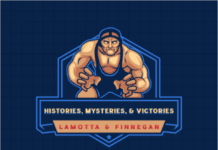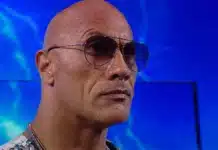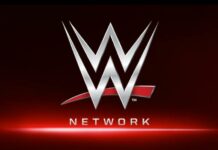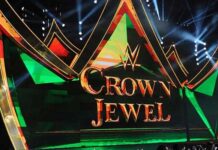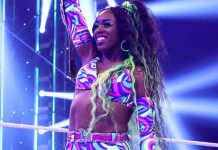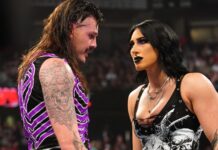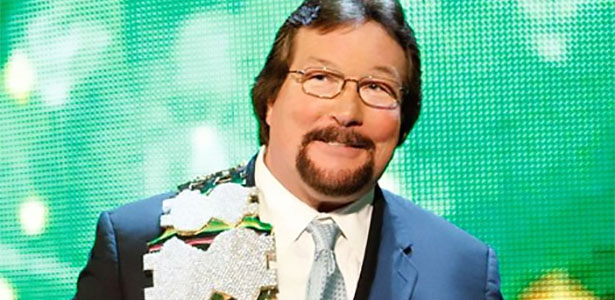
WWE Hall of Famer “The Million Dollar Man” Ted DiBiase recently took some time to participate in an exclusive in-depth interview with PWMania.com. DiBiase, now retired from active wrestling, serves the public as a minister for Heart of David Ministry and had a lot to say about his new profession, wrestling, his family and more. Below is the complete interview.
Mr DiBiase, thanks for taking the time to talk with PWMania.com. It’s a pleasure to have you. My first question for you is what was it like growing up in a wrestling family and how did it influence you to become a wrestler?
I grew up in it. My dad, Mike DiBiase was a wrestler, so it was a natural fit for me. I was one of those kids who wanted to be just like my dad. The one thing my dad didn’t want me to be was a professional wrestler. I understand that today, as a father, because I didn’t want my boys to be wrestlers. It is not because of the wrestling itself. It is because of the lifestyle. The demands of a wrestler are heavy in terms of time spent away from family. If you’re single, it’s great but if you have a family, it can really affect you. There are a lot of guys going as far back as the era of my father when all the travel was done by car. There was a lot of divorce and alcoholism. When I became a parent, that was important to me to not let my kids end up like that.
But my son Michael blew his knee out and that was the end of it for him. Brett had 4 knee surgeries and a neck fusion.
Ted Jr. did great and WWE actually wanted him to renew his contract, but he declined. It was his decision. He called me up and said “I don’t think all this time it’s going to take to make me a star in this business is worth it.” He had been home with his wife with her pregnancy and the time away from her was affecting him. I applaud him for making the right decision. People have asked me if I thought Ted Jr. should have been used better. Usually, as a father, you want to say “Yes, he should have been.” But I thought the Legacy stable was very well done. However, in terms of the writing, I didn’t agree with what happened to them afterwards. Ted and Cody became tag team champions, but those titles had become irrelevant by that time, even though Ted and Cody were getting over. When Mike Rotunda and I were champions in Money Inc, the belts meant something. The tag straps were something to look forward to and nowadays they’re not that big of a deal.
As far as my son’s other endeavors are concerned, I thought The Marine 2 was decent. It was the highest grossing movie that WWE has produced, to my recollection. He got a lot of accolades for that. But Ted decided not to wrestle. He was not bitter and he was thankful for the opportunities, but it simply was not his dream anymore. He’s become quite the entrepreneur and he’s probably working harder than he did when he was a pro wrestler. He feels comfortable sleeping in his own bed every night. Had he continued to wrestle, I would have still supported him.
When my son was younger, he basically said the same thing I told my father: “Dad, I want to be just like you.” He had gotten a bachelor’s degree in business administration from Mississippi College, but he wanted to wrestle. I knew that if I didn’t give him a chance, he was going to hold that against me. Some things you have to learn by experience and he learned just like I did. And I told Ted that he grew up faster than I did. It didn’t take him halfway through his career to figure out that there has to be an easier way.
But back to your question: I love entertaining people and being in the ring. I don’t miss the physical toll it took on me. I’ve had both my knees replaced, I’ve had two surgeries on my neck and I struggle with lower back pain which I will deal with for the rest of my life. Like a wise man once said, “Everything has a price.” People ask me if I miss it. Of course I do. But do I wish I could still be going? No. I put in almost 20 years and I’ve had my run and I’m happy with that.
You definitely have to want to be a professional wrestler to meet the demands of the business. But I’d like to ask about your son, Ted Jr. Do you think that when he came into WWE, using the name Ted DiBiase, that there was already high expectations for him? Do you think things would have been different if he had gone under a different name?
There’s always a lot of speculation about that. Yes I do believe as soon as he walked through the curtain and his name was announced as Ted DiBiase, whether people realize it or not, there was a higher level of expectation. When we were in Denver for his first appearance, I told him “As soon as you walk through that curtain, here’s what I want you to do: I want you to get to a place in your mind where you say to yourself, ‘This is just another day, this is another wrestling match.’ And he knocked it out of the park. You never get a second chance to make a first impression.
The difference with me is when I started wrestling, some knew my name, but not everybody, as it was in the case with my son and I. My dad had a great name in the business within wrestling circles. He was always a main event guy, but he was never world champion and never wrestled in MSG. So living up to his name standard was not a huge issue for me. But I think that for the most part, for guys who are second or third generation wrestlers, it is an issue. Maybe it would have made a difference if Ted Jr. had gone under a different name. But I think that no matter what your name is, as long as you’re great, it’s going to show.
Another example is Curtis Axel. He’s a good kid and he’s a good worker. I think he’ll be just fine. I think at this point it wouldn’t hurt him to go by his real name. But everyone knows who he is now, anyways. Here’s the point: If they already know who you are anyway, what difference does it make? Especially with social media nowadays, there’s no way you can protect a guy’s name. These guys come down to the Performance Center and they’re on Twitter, showing all the pictures and talking about their experiences. That’s going to get out and word about them will go around before he ever gets to walk out on the stage in WWE.
So if everyone’s going to know about them, what’s the purpose of repackaging guys such as Primo and Epico who got repackaged as Los Matadores if people already know who they are?
Some gimmicks work and some don’t. You remember Mr. Wrestling II? His real name’s Johnny Walker. Johnny Walker was always a great wrestler, but he never got over until he put that mask on. So, it was something that clicked that caught the people’s attention. What was unique about my character is that it had never been done before. But now, there have been two versions of my character that have been done since then: JBL and Alberto del Rio. They are in essence, a continuation of that same gimmick.
Matter of fact, at old School Raw, I took a picture with JBL and Del Rio and I jokingly called it Me and 2 Generations of a Stolen Gimmick. JBL’s the cowboy version of me. Del Rio is a different version of me as well. The only difference is JBL never had a valet like Virgil or Ricardo Rodriguez.

With that in mind, WWF gave you first class travel, 5 star hotels and cash vouchers in order to get the character over. How did it feel to incorporate elements of your TV character in real life?
It all has to do with marketing. The greatest marketing is word of mouth. Nobody can disagree that Vince is extremely good at marketing. He has marketed WWE so well and even the name Wrestlemania is synonymous with events like the Super Bowl. Now, this past Super Bowl was terrible. But, it’s a brand, just like WWE is a brand. People will still watch that brand. Wrestlemania will sell out because of its strength as a brand.
But, back to my character, on occasion, I’d go into restaurants with cash from WWF and I’d announce myself as The Million Dollar Man and I would go around and pick up everybody’s checks. Sometimes the total amount of all those checks would be around $600-$700. But I’d take that back to Vince, give him the receipts and he replenished the money. The point is that those people are going to go out and say “You know what just happened? The Million Dollar Man picked up my tab.” The goal was to make people believe as much as possible that I really was my character.
So, with all the effort that Vince put into your character, why do you think there’s not too much of an effort to do that for guys anymore? Do you think that goes back to your earlier point about fans knowing about wrestlers before they step through the curtain?
It’s hard for me to say. It depends on the gimmick. The concept of guys riding around in their own limos isn’t such a big thing as it was before, because people expect it. The business has gotten so much bigger. But I’m sure there are other things they do to emphasize a character.
Here’s the thing: I don’t know what’s going on in WWE all the time, but anything they can do to bring prominence to a character is great, as long as it’s appropriate. And I’ll turn on the show every now and then. People ask me, “You don’t watch the show every week?” And I ask them, “If you’ve been a doctor for 30 years and you’re retired, would you watch Dr. Oz every week?”
Getting back to your Million Dollar Man character, you were able to evolve beyond a singles wrestler and be a part of Money Inc. and then the Million Dollar Corporation. How do you feel about your managerial role in that stable? How do you think the Million Dollar Corporation stood out from other stables and what do you think those individuals in that group contributed to the WWF product at the time?
They contributed a lot. I became a manager because my in-ring career had ended and we wanted to continue my career, so the best thing they could do was make me a mouthpiece; a Bobby Heenan type character. Now, I don’t think anybody will ever top Heenan because he was one of the greatest of all time in terms of being a mouthpiece. Usually guys who were managers back then were placed with guys who were good in the ring, but not as good on the mic. But when I was managing the corporation, I had King Kong Bundy who was a good speaker. I had Steve Austin and look what he became. He surpassed Hogan in terms of popularity.
Anyway, I thought I was a good manager, but I thought I was a much better wrestler. People that started watching wrestling after I became a manager did not even know I was a wrestler even though I had wrestled for a majority of my career. I started managing from 1994-1996. So for almost three years in WWF, I was a manager. I don’t count my 3 years in WCW, those were the worst three years of my life.
Speaking of WCW, how do you feel about your overall run in WCW? How were your experiences with the NWO and Eric Bischoff?
I thought the NWO was a great idea even though it wasn’t Eric’s idea. The thing about Bischoff is there was no way he was ever going to compete with Vince. Vince came up in the business with his father and knew wrestling and marketing and was generally a smart guy. Let me put it this way: The guys who made the NWO and made WCW competitive against the WWF were guys who came from WWF, except for Ric Flair, Sting and Goldberg. Everybody else came over and signed big contracts with Ted Turner.
The biggest angle in wrestling was the fight between WWF and WCW. Everyone was tuning in to see what was transpiring. But when the NWO ran its course, where were the new ideas? Vince simply created new stars. Name me one guy other than Goldberg that Bischoff created. A guy like Goldberg is not hard to create when you feed him every star that came in and then have him beat them. But that was the end of it.
I remember talking with Eric and he said to me, “I’m going to put Vince out of business.” I laughed in his face when he said that and said “Are you kidding me?”
When I left the WWF, it wasn’t because I was unhappy with the company. I just didn’t want to be on the road anymore. That was a conversation I should have had with Vince and I didn’t. Being on the road was affecting me. My problems weren’t drugs or alcohol; mainly it was women. There wasn’t anyone out there that was going to hold me accountable because that was the life of a wrestler on the road. I wanted to escape that by working for WCW and I told them I’d be fine with being a manager or commentator, as long as it didn’t require me to be on the road.
But when I got there, it was horrible. It was the poorest-run organization I have ever worked for. Nitro was a live show and they would still be trying to figure out what they were going to do at the last second. And this wasn’t just when the ratings were in WWF’s favor later on; this was an issue from the get-go. They had too many primadonnas. The thing about working for Vince is that he’s the boss and people do what he says. In WCW, guys had creative control in their contracts where if they thought something would be damaging to their character, they had the right to refuse to go through with it. And in the end, who ran whom out of business? And who ended up working for whom?
Going back to what you mentioned earlier about Steve Austin: You managed Steve Austin as the Ringmaster. You were in WCW when Austin’s character took off. Looking back, do you feel as if you missed out on Austin’s success? Do you think you could have configured your character in a way to mesh with Austin’s? What was your first reaction when you realized Austin had blown up?
I was really happy for him. I told him when I managed him the reason Vince put me with guys is because he hoped I would groom them. I told Steve at the time to keep doing what he was doing because what it is believable. You may not get over as fast, but you will last longer than guys who get over real fast and then their popularity dies out. Once you get over, you can do whatever you want. I don’t think anybody expected his character would grow to be as big as it did.
But, as far as still managing him if I was still there, I wouldn’t be with him. As a Christian, I had an issue with the Attitude Era. If Stone Cold’s character was the heel, I’d be okay with it. But because he was drinking beer, flipping the bird and cursing…and getting cheered for it? And he becomes a babyface? That sends a message to teenagers that it’s ok to do all those things. That didn’t sit well with me.. The same thing was true with the NWO because we were the bad guys. But the bad guys were becoming the cool thing to be. There are good guys and bad guys in wrestling and I feel the story that should be told is that the good guys in the end win. If we send that message to kids, we are sending the right message. The Million Dollar Man character always got his butt kicked in the end.
Another thing was that it wasn’t just me who had a problem with the Attitude Era. I heard it from fans everywhere. Those who were fans who had since grown up and started their own family said to me “We loved wrestling when you were in it, but we can’t watch it nowadays with our children.”
But as far as Steve goes, I would not have been his manager. Steve did well on his own and he did not need a mouthpiece.
Some wrestling fans feel that WWE should appeal to adults instead of children because adults themselves pay for the product more. Do you agree with that?
I don’t agree and I’ll tell you why. The number one attraction in this country in terms of entertainment is Disney World. I said this to Stephanie McMahon when I worked for WWE for a short time in 2005-2006. I still say it to this day. The top grossing movies in America are animated children’s movies. There was a time when you couldn’t get a celebrity to be the voice of a cartoon character. Now they all do it because they make more money than some of their other films.
When I grew up in wrestling, wrestling was a blue collar form of entertainment. When you saw wrestling in the 50s, 60s and 70s, you didn’t see a lot of families. Vince made wrestling family oriented with the colorful, over-the-top characters and even put a cartoon on television and it became bigger than it’s ever been. I would always encourage WWE back in the day to go back to family entertainment because that’s what made them great.
There’s a film called the Son of God coming out and Hollywood is starting to promote these kinds of movies that are made by churches with small budgets and they are grossing millions of dollars. Why? Because the majority of the people in this country still want something wholesome. I’ll go to movies now and again and see something with a lot of special effects in it. But two weeks later if you asked me anything about the movie, I wouldn’t remember any of it.
That relates to wrestling, because where has Wrestlemania been the last few years? In big stadiums.
Another thing about having a wholesome program is that TV ratings are extremely important now. I believe Vince wants big-name sponsors and the only way he’ll get that is to have a family-friendly format. Yes, parents spend the money, but they spend the money so they can enjoy something with their kids.
Regarding TV ratings, didn’t WWF get higher ratings when it aired adult-oriented programming?
The reason for those higher ratings is because of the war between Vince McMahon and Ted Turner. They were two prominent figures engaged in a ratings battle for supremacy. People tuned in for the competition.
Wrestling ratings have never been higher than during that time period. But wrestling has changed since then. I think that having a 3 hour Raw is too much to have every week. If Raw is 3 hours, then what makes the pay-per-views special? 3 hours on Monday Night, 2 hours on Friday night and so on and so forth is just oversaturation of the market. It brings ratings down, in my opinion. It would be much different if they had just one show per week. On another note, I was just at a car show in Louisville signing autographs along with Big Show. Some fans came up to me and said “We used to love wrestling, but there’s too much drama; too much talk and not enough wrestling.”
My last two questions stemmed from my original question about Stone Cold. My next question is about The Undertaker. You managed him early in his WWF career and he is still a significant presence in WWE 24 years later. How does it feel knowing that a guy you helped to introduce on WWE television is still around after all these years? Also, what is your opinion of him being used strictly as a Wrestlemania attraction nowadays?
For Mark to have the kind of run that he’s had is phenomenal. The Undertaker gimmick is extremely unique and it had never been done and it has never been copied, which maintains its uniqueness.
Regarding his once-a-year Wrestlemania appearances, I can only think “Mark, how many times can you do this?” Every year I think he would be getting closer to the end. But the fact that he only makes this one-time appearance is great because fans of the Undertaker will be there and will look forward to seeing him. One of the reasons Elvis Presley was famous is because the only time you ever saw him was when he walked on stage. He would walk on stage, would perform and literally left the building. It adds to the mystique. The less you see something you like, the more you want to see it.
We’ve talked a lot about your WWF/E career. Let’s rewind and touch on your earlier years in wrestling. How was your experience in the NWA territories and in Mid-South and how was the atmosphere different from WWF?
I spent most of my time in Mid-South and NWA during the regional TV days. I mostly wrestled in Amarillo, TX, and Kansas City. This was during the time when even though we knew wrestling was predetermined, we still tried to convince the public that we were “real” in a sense that if somebody was a big heel getting heat, they had to have been prepared to defend themselves because fans often took it seriously. So the atmosphere was very different from WWF. There were times when I had to defend myself and knock a couple guys down if they jumped into the ring. But once Vince went public and called his company sports-entertainment, that was the difference and then the market changed. But in Mid-South when I was working for Bill Watts, he helped to groom me in terms of knowledge and psychology of wrestling. Plus I got to work with people like the Funk Brothers, Dick Murdoch and the Briscos. Those early years are just as dear to me as my later years.
Moving away from wrestling for a moment, you are a minister for Heart of David Ministry. How did you decide to become a minister?
It’s one of those things where you don’t decide overnight if you’re going to do it or not. At the height of my career in March of ’92, the day after Wrestlemania VIII, I flew to Detroit and checked into a Marriott. I called home to check in on my wife and she confronted me with adultery. She found out I was cheating on her. In a fraction of a second, I realized I had put the most important things in my life at risk solely for the purpose of feeding my own ego. I was raised a Christian, but I had drifted away and that moment is when I turned back to the values I was raised with. I didn’t understand how selfish I had been.
When people do things they know they shouldn’t do, they have a tendency to rationalize those actions. But after a while, they can’t rationalize those things any longer and then they start to see who they really are. Sometimes it’s pretty ugly. In spite of my fame, I was out filling this void in my life with all this junk. That was the point where I started to put my family ahead of my career. My decision to become a minister happened over the course of the next 8 years when I started to be invited to little churches to speak. As that grew, I realized God was using me as a vehicle to reach people. In other words, it’s not me that touches anybody’s life, it’s God who does it through me.
I’ve wrestled in front of 80,000 people, which is a big deal. But to have one kid walk down the aisle, throw his arms around me, weep and tell me that he never understood why his family said he needed Jesus in his life, but that through my story, he gets it, and to know that I was a part of him changing his life, you can’t put a price tag on that. So, the more that those things happened, the more my passion shifted.
Don’t get me wrong, I’ll always love wrestling. But when I went back to work for WWE for a short time, I went begrudgingly. A lot of people there came up to me and said they remembered me when I was a wilder guy. It was an opportunity to let them see somebody they didn’t know, because I had changed so much.
I was ordained by my local church in February of 2000. I established Heart of David Ministry, which is a nonprofit organization that seeks to help people change their life through Jesus Christ.
Being a minister was the last thing I ever thought I would be. But I have never been happier.
As a minister, have there been any significant moments where you feel your counsel truly touched somebody and made a difference? Anything in particular come to mind?
Well, there have been a lot of those. That’s what keeps me going. I’ve spoken in numerous prisons and I’ve had the opportunity to counsel a lot of guys sitting in jail and to hear their stories.
But there was this pregnant teenage girl who was considering abortion simply because she made the mistake of getting pregnant and I encouraged her to have the baby. I told her she can give it up for adoption if she can’t support it, because there’s a lot of people who can’t have children that want children. That gives that child a chance to live. So that’s one story.
I remember I spoke at a church in London, Ontario, Canada and after services, a young man came forward after everybody left and said, “Ted, when I left my house tonight, I was looking for a place to commit suicide. I happened to drive by this church and saw your name on the billboard, so I stopped to come in. For some reason I couldn’t get out of my seat during preaching. You saved my life tonight.” I told him “I appreciate your words, but I didn’t save your life tonight. Jesus Christ saved your life and your eternally mortal soul.”
There was another guy who told me a story about checking into a hotel with the intent of killing himself. He had a .38 caliber revolver in his hand, but a Bible was open on the desk and it was opened to the most quoted John 3:16. He told me, “I put down the gun and picked up the Bible and my life has changed since.”
I can tell you a bunch of other stories, but those two are examples of what keeps me going as a minister. I’ve had a lot of experiences. I’ve had conversations with atheists. One I can recall is I spoke to a guy and told him he was entitled to his beliefs and I asked him some questions. I asked if he read the Bible and he said no. I asked if he can tell me the difference between the four major world religions and what they believe and why and he said no. I said to him, “Here’s what you just told me. You don’t believe in a God that you never even tried to look for. You listened to a teacher who believes in evolution and she told you that you originated from slithering out of the swine and you think that’s the truth.” I told him it’s easier to believe in a Creator than evolution. Believing in evolution is the same as believing you could take all the parts of a 747 airplane, leave them in a hangar for a billion years and then come back and have it put itself back together. The man who discovered the DNA model said that the structure of it was impossible to happen just by chance. It’s amazing how many people don’t believe in God and have never taken the time to search.
Well, Mr. DiBiase, you have given a lot of insight into your career as a wrestler, a manager and a minister. So at this point, what’s next for Ted DiBiase?
I’m going to continue to spread the word of God especially in the culture we live in today. I am a Christian Conservative. There was a chilling statement made by Nikita Kruschev years ago: “Russia would destroy the US without ever firing a shot.” Basically, he is saying that we will put socialism in the country. And I believe that’s exactly what has happened. They’ve managed to take God out of school. You can’t offend Muslims but you can offend the Christians all day. School prayer is not allowed. All these laws that are being made take away from our liberties. We have a president now that is basically saying “You know what? You don’t have to work, we’ll take care of you.” There are kids who believe they are entitled to everything. The only thing a person should be entitled to is a fair and equal opportunity to make a living. We’ve lowered the bar in the name of not hurting feelings.
For example, if you had a son, what team would you put them on? The team where he can be the star of the team? Or the team where everybody’s pretty good where he has to work harder to better himself? That’s where I put my son, because he had to work harder to be the best. If I put him on the other team, he’ll never be the best. He’ll just be the best on an average team. And that’s what’s happening to America and our schools.
Adding on to that, we have Obamacare which I don’t agree with at all. There are more people riding the cart than people pulling the cart, if you get my analogy. Ask Vince McMahon when he was young and working hard to create the empire he built today, if someone just told him, after all that time and effort, “Alright, well we’re going to take half your money.” You know what Vince would have said? “Screw it, why should I work that hard?”
So basically, there are a lot of problems in our country today. I am going to continue to spread God’s word in hopes that I will be able to help people as I always have and that the world will not fall victim to our country’s problems.
Mr. DiBiase, thanks again for your time to talk with PWMania. You have done a lot for wrestling and you have a respectable new career nowadays. Everyone at PWMania wishes you the best in all you do.
What do you think? Comment below with your questions, thoughts and anything else that was raised.
Follow Ted DiBiase on Twitter @MDMTedDiBiase or visit his website at MillionDollarMan.com
For more information on Heart of David Ministry, visit their website at HeartOfDavidMinistry.com
Follow Brett on Twitter @TheDeutch

